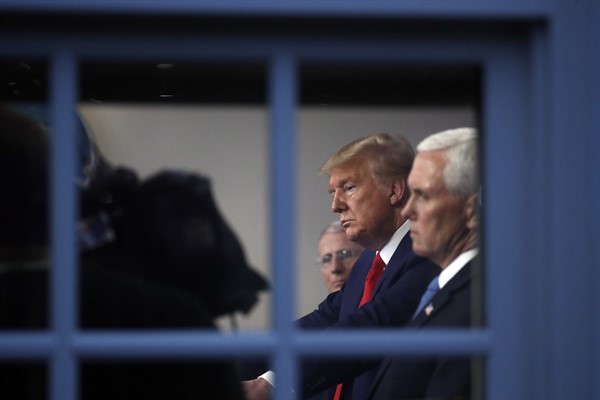Rather than introducing a new world order, the responses to the COVID-19 pandemic are reinforcing recent trends of strategic competition among the United States, Europe and China.
As the potential magnitude of the COVID-19 pandemic became clear in March, there was a lot of immediate speculation about just what its impact would be. Many of those initial predictions announced a radically transformed world order. A triumphant China, some declared, would capitalize on its success in containing the outbreak to emerge as the new global leader.
A closer look at the subsequent responses to the pandemic by governments around the world suggests that the coronavirus has actually served to highlight or confirm developments that had already been on display, some for decades and others for at least the past several years. Absent a sea change in government responses at the multilateral level, the pandemic is unlikely to transform the international order so much as reinforce these current trends.

